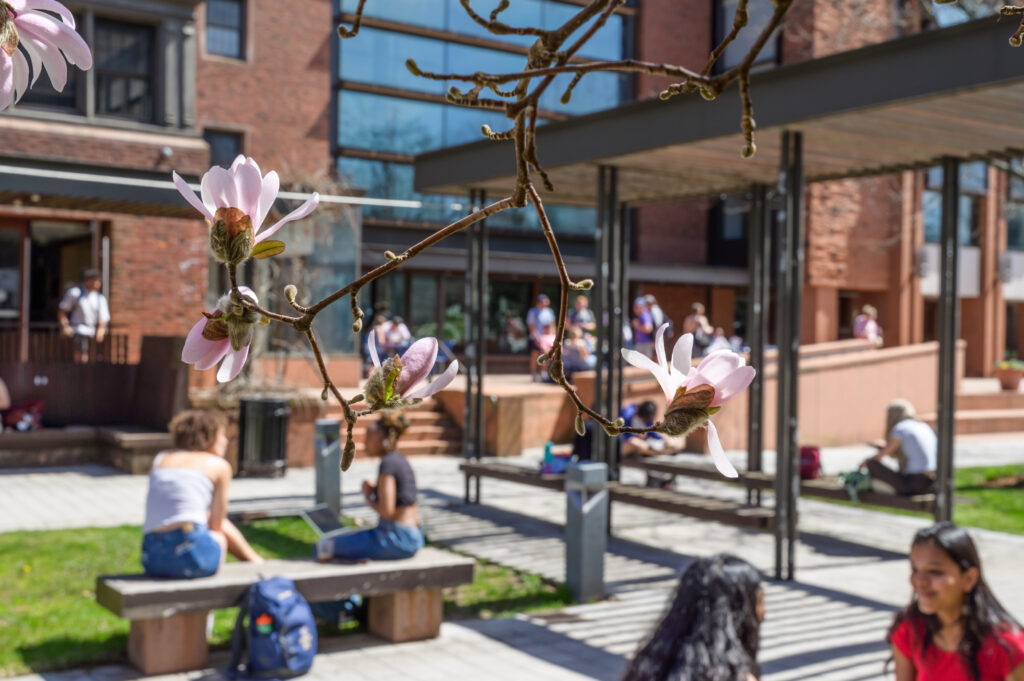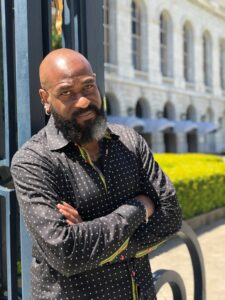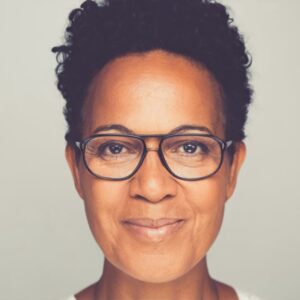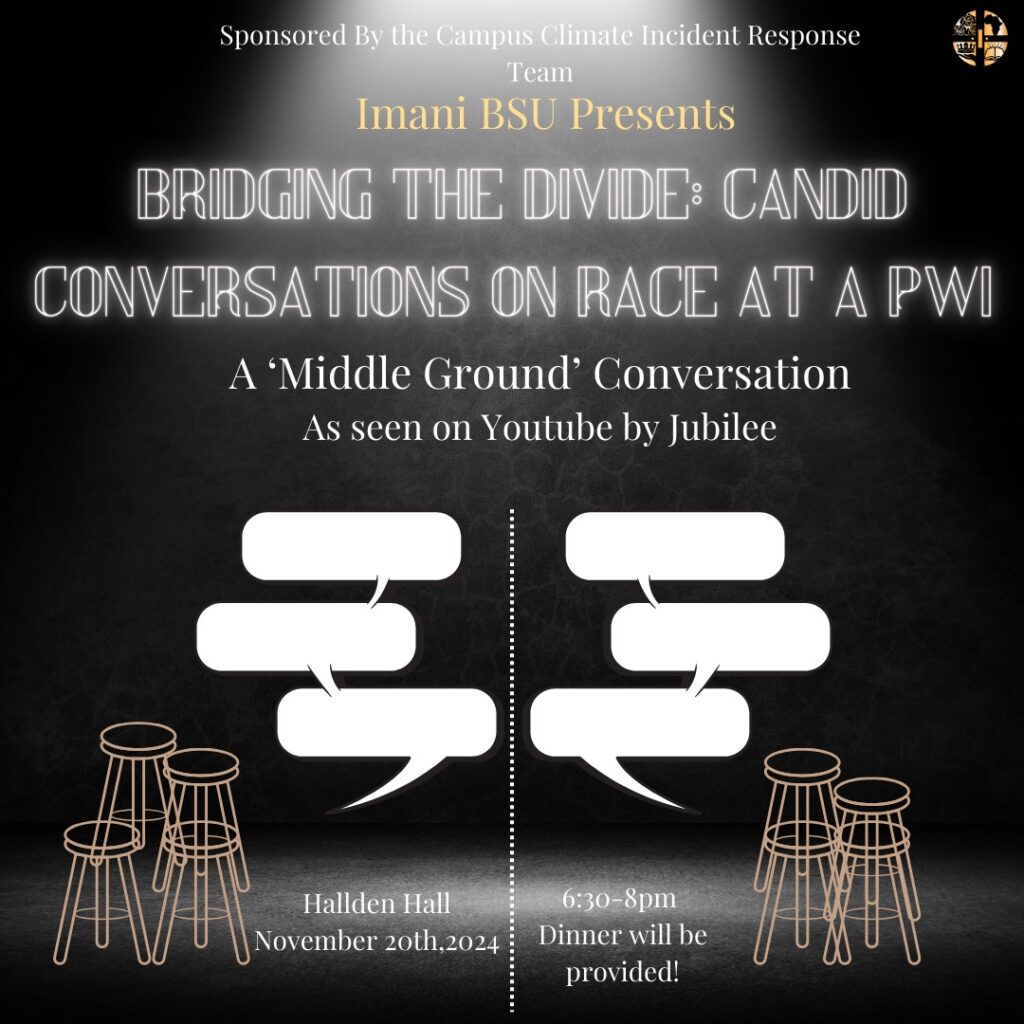Yearlong ‘Dialogue Project’ Encourages Conversations on Complex Issues
Seeking to promote listening and understanding across campus, Trinity’s Campus Climate Incident Response Team (CCIRT) has created the Dialogue Project, a yearlong series of events that enhance communication skills and foster discussions across differences.
Comprising students, administrators, faculty and staff members, the CCIRT promotes inclusion and equity through its focus on the Trinity community’s response to incidents of bias and other actions that are harmful to the campus climate.

“We did a survey of the campus community last year, and students were asking to have the opportunity for skill building in the area of having dialogue across difference,” DiChristina said. The Dialogue Project was designed to provide students with a set of skills to facilitate person-to-person conversations. “It emphasizes the values inherent in listening and caring—not in having a debate to win, but a dialogue to listen—and putting those skills in motion in the day-to-day lives of our students,” DiChristina said.
The Dialogue Project has three main components: workshops and programs organized by the CCIRT; events hosted by other groups on campus, with the support of the CCIRT; and a wellness course through the Trinity Plus curriculum in which students gain a deeper understanding of how to engage as active citizens and community members by learning skills such as active listening and reflection.

The most recent Dialogue Project workshop organized by the CCIRT was an October 28 session for students with Charles “Chip” McNeal, director of the Office of Diversity, Equity, and Inclusion Education and Learning Initiatives at Brandeis University. The workshop combined interactive exercises, group discussions, and case studies, providing students with the tools and knowledge necessary to engage in constructive dialogue on complex and divisive issues. McNeal is a former professional dancer and an award-winning educator, researcher, civic leader, and activist with a focus on arts, educational equity, social justice, community engagement, and cultural intelligence.
As student members of the CCIRT, Maliah Ryan ’25 and Lily Trunzo ’27 helped to tailor McNeal’s workshop to meet the needs of the Trinity community and also learned a lot from the experience themselves.
Ryan said, “Dr. McNeal’s engaging style taught me several valuable skills for facilitating dialogue. He emphasized the importance of maintaining composure as a facilitator, especially in difficult conversations. Techniques like reflective listening and asking questions were highlighted as essential tools for establishing deeper understanding. The workshop also provided opportunities for practice, allowing us to refine these skills in real time.”

Trunzo said that she found McNeal’s strategies for listening—including reflecting back, asking a probing question, and checking in on the larger emotional tone of the conversation—to be particularly helpful. “It’s easy to find oneself at a loss for words or suddenly unsure of how to proceed when working our way through a challenging dialogue,” she said. “These strategies offer concrete, memorable options that students can use to advance conversations both effectively and respectfully.”
The student organizers said that it is important for the CCIRT to host the Dialogue Project as a way to create space to address challenging issues such as racism, sexism, and other forms of discrimination. “If the Dialogue Project continues to raise awareness and promote constructive dialogues, it could play a key role in making Trinity a more welcoming and inclusive space for everyone,” Ryan said.
Trunzo reflected, “For me, the Dialogue Project and this particular workshop are all aimed toward the larger goal of creating a campus environment where members of the Trinity community are versed in respectfully expressing their perspectives and constructively responding to those of others.”
DiChristina added, “There’s a need in this world for this kind of skill building for all of us. Ultimately, this project is about building community through dialoguing about topics that people sometimes struggle to talk about.”

The next program is called “Bridging the Divide: Candid Conversations on Race at a Predominantly White Institution,” hosted by Imani: Trinity College Black Student Union in Hallden Hall on Wednesday, November 20, at 6:30 p.m. The student-run program is sponsored by the CCIRT as part of the Dialogue Project.
The CCIRT invites academic departments or other campus groups planning additional events involving communicating across differences during this academic year to join with the Dialogue Project, which can provide advertising and funding. Event organizers interested in partnering with the Dialogue Project may complete this form or contact a member of the CCIRT.
